How long to cook potatoes: A comprehensive guide
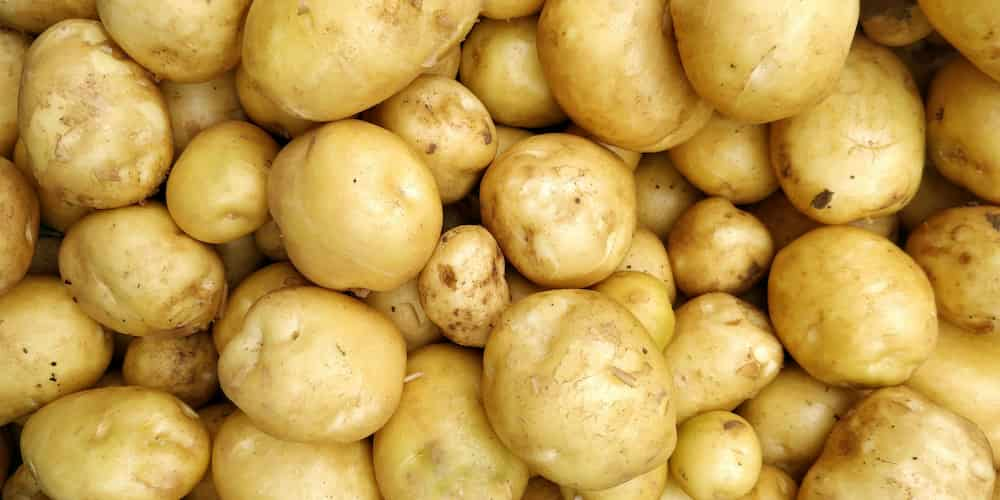
Potatoes are a versatile staple in many cuisines, offering a variety of preparation methods to suit different dishes. Whether you're boiling, baking, roasting, or frying, understanding the appropriate cooking times is essential to achieve the desired texture and flavor.
On this page, you'll find detailed guidelines on how long to cook potatoes using various methods. To assist you during the cooking process, we've provided an adjustable timer directly on the page, allowing you to set it to any desired duration for optimal results.
Cooking methods and times
Understanding the appropriate cooking times for various potato preparations is essential to achieve the desired texture and flavor. Below is a comprehensive guide detailing different methods and their respective cooking durations.
Boiling potatoes
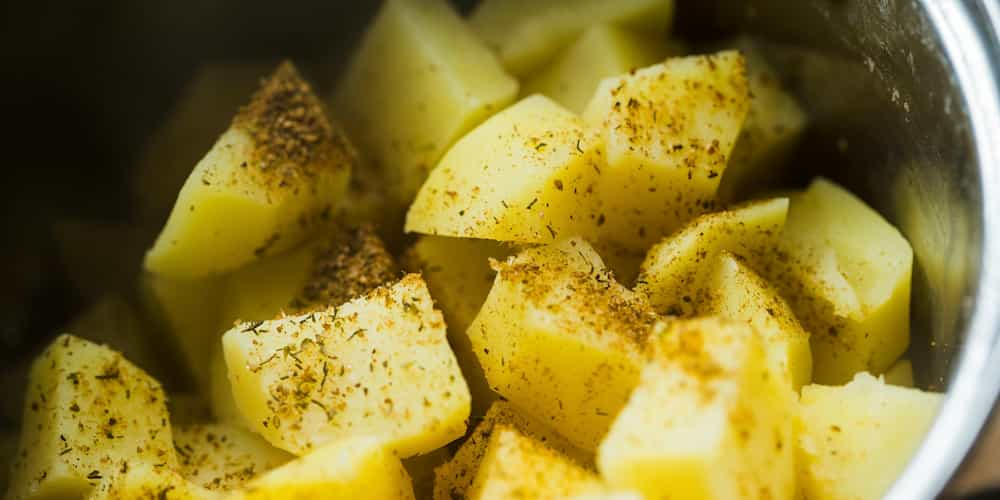
Whole potatoes
Boiling times vary based on potato size:
- Small potatoes (1-2 inches in diameter): 15-20 minutes.
- Medium potatoes (2-3 inches in diameter): 20-25 minutes.
- Large potatoes (over 3 inches in diameter): 25-30 minutes.
Test doneness by inserting a fork; it should slide in easily.
Cubed potatoes
For uniformly cut cubes:
- 1-inch cubes: 10-15 minutes.
- 2-inch cubes: 15-20 minutes.
Ensure even cooking by cutting potatoes uniformly. Check tenderness with a fork.
For mashed potatoes
To achieve creamy mashed potatoes, boil peeled and cubed potatoes (1-2 inch pieces) for 15-20 minutes until tender. Drain thoroughly before mashing to reach the desired consistency.
For potato salad
Maintain firmness by boiling whole small potatoes or cubed potatoes for 15-20 minutes. After boiling, cool them promptly in ice water to halt the cooking process and preserve their structure.
Baking potatoes
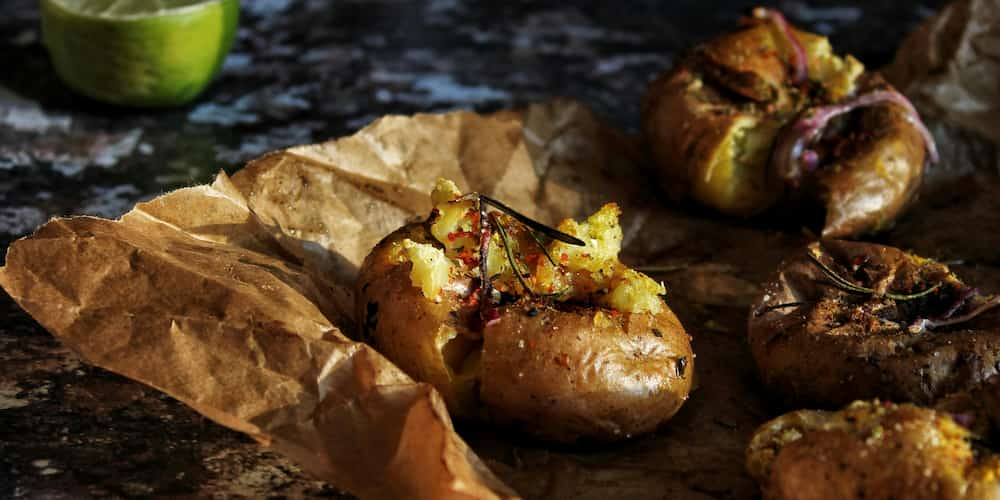
Baked potatoes in oven
Preheat the oven to 400°F (200°C). Bake medium-sized potatoes (5-6 ounces) for 45-60 minutes. Larger potatoes may require up to 75 minutes. Potatoes are done when a fork easily pierces through.
Jacket potatoes
Similar to baked potatoes, jacket potatoes are cooked at 400°F (200°C) for 45-60 minutes. For a crispier skin, rub with oil and sprinkle with salt before baking.
Twice-baked potatoes
First, bake potatoes at 400°F (200°C) for 45-60 minutes. After scooping and mixing the filling, return them to the oven for an additional 15-20 minutes until heated through and slightly browned on top.
Roasting potatoes
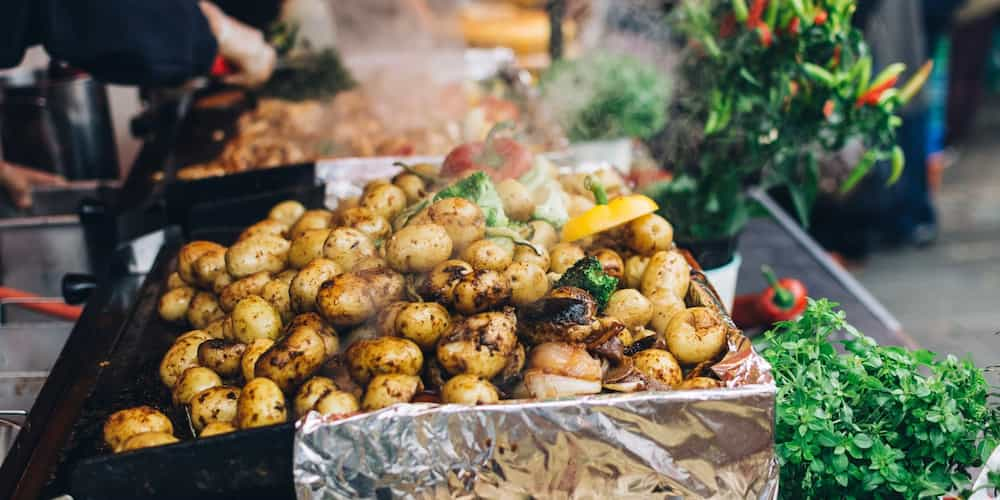
At 180°C (356°F)
Roast cubed or wedged potatoes at 356°F (180°C) for 45-50 minutes, turning halfway through. This temperature yields a crispy exterior and tender interior.
Potato wedges
For evenly cooked wedges, roast at 400°F (200°C) for 30-35 minutes, flipping once. Ensure wedges are cut uniformly for consistent cooking.
Microwaving potatoes
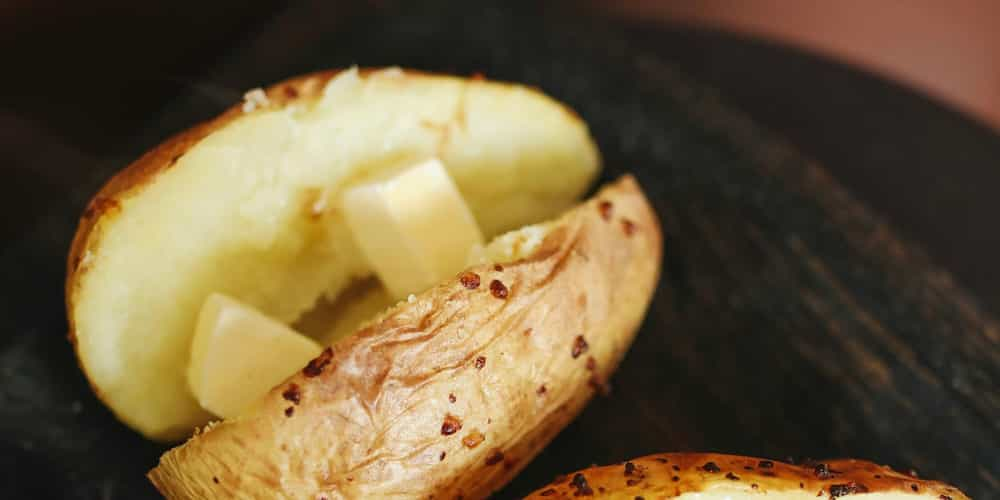
Whole potatoes
Place a washed, pierced potato on a microwave-safe plate. Microwave on high:
- Small potatoes: 4-5 minutes.
- Medium potatoes: 6-8 minutes.
- Large potatoes: 10-12 minutes.
Turn potatoes halfway through cooking. Let them rest for a few minutes before serving.
Cubed potatoes
Place cubed potatoes in a microwave-safe dish with a lid. Add a splash of water, cover, and microwave on high for 8-10 minutes, stirring halfway through. Ensure even cooking by cutting cubes uniformly.
Air frying potatoes
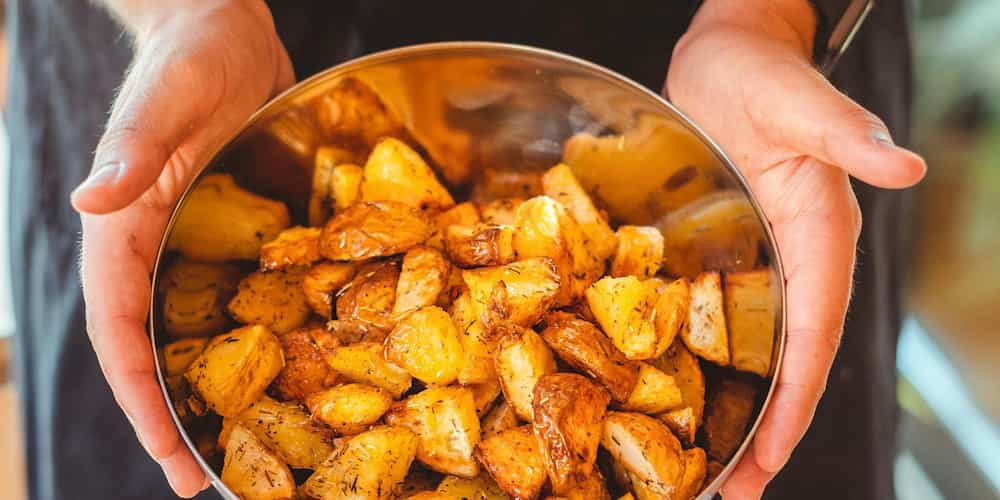
Whole potatoes
Preheat the air fryer to 400°F (200°C). Cook whole potatoes for 35-40 minutes, turning halfway through. Test for doneness by inserting a fork; it should go in smoothly.
Potato wedges
Toss wedges in oil and seasonings. Air fry at 400°F (200°C) for 15-20 minutes, shaking the basket halfway through to ensure even crisping.
Slow cooking (crock pot)
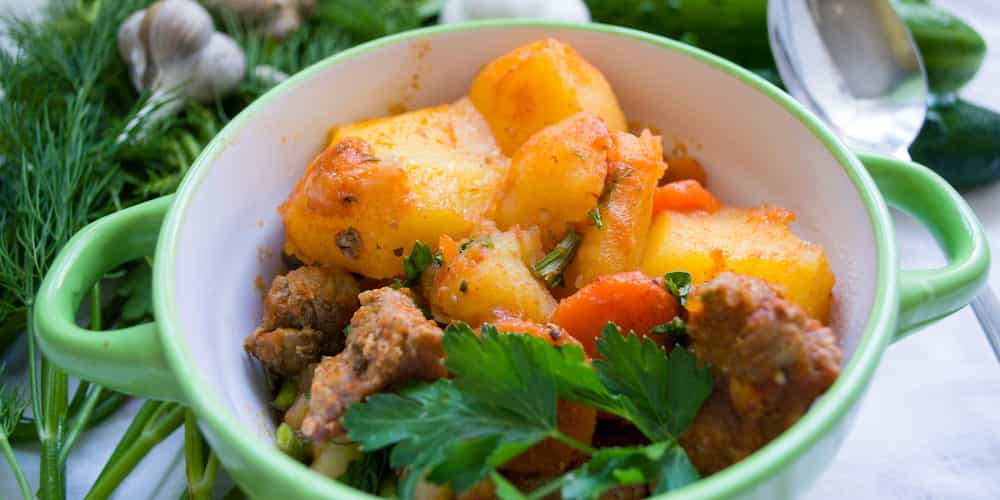
Whole potatoes
Place whole potatoes in the slow cooker:
- Low setting: 6-8 hours.
- High setting: 3-4 hours.
Cooking times may vary based on potato size and slow cooker model.
Cubed potatoes
For stews or casseroles, add cubed potatoes to the slow cooker:
- Low setting: 4-6 hours.
- High setting: 2-3 hours.
Ensure potatoes are cut uniformly for even cooking.
Instant Pot cooking
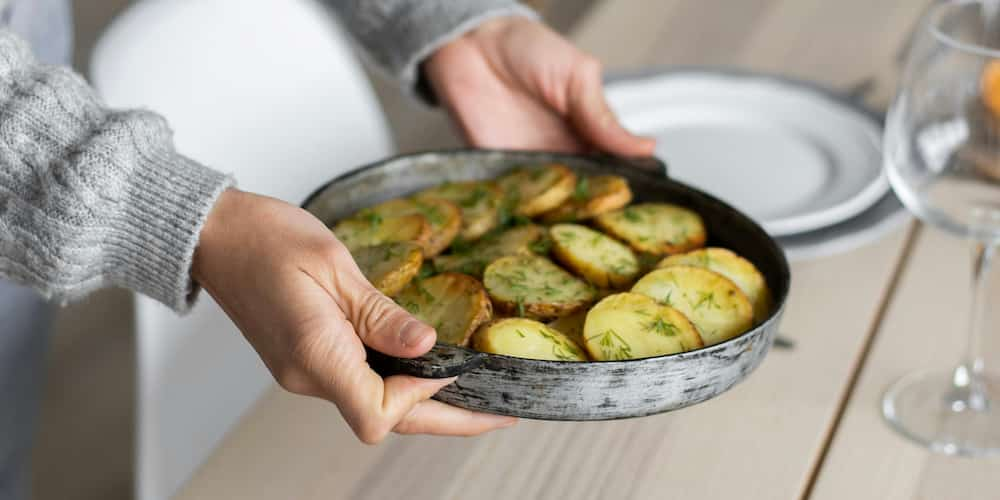
Whole potatoes
Place whole potatoes on the trivet inside the Instant Pot with 1 cup of water:
- Small potatoes: Pressure cook on high for 12 minutes.
- Medium potatoes: Pressure cook on high for 15 minutes.
- Large potatoes: Pressure cook on high for 20 minutes.
After cooking, allow a natural release for 10 minutes before using quick release to vent the remaining pressure.
Factors influencing cooking times
Cooking potatoes to perfection depends on several important factors. Below is a detailed guide to the key elements that affect cooking times and results, along with practical tips to help you achieve the best outcome.
Size and shape
The size and shape of potatoes play a major role in cooking time. Whole, large potatoes take significantly longer to cook compared to small or cubed pieces. For even cooking, cut potatoes into uniform pieces, especially when boiling or roasting. This ensures that smaller pieces do not overcook while larger ones remain undercooked.
Potato variety
Different potato varieties have unique properties that influence their cooking time and the final dish. Here's a detailed look at some of the most common types:
- Russet potatoes: These high-starch potatoes have a fluffy interior, making them ideal for baking, frying, and mashing. They absorb liquids well, which is great for mashed potatoes, but they may fall apart if boiled whole. Baking time: 45-60 minutes at 400°F (200°C). Boiling time (cubed): 15-20 minutes.
- Yukon Gold potatoes: A medium-starch, all-purpose variety with a creamy texture, perfect for mashing, roasting, or boiling. These potatoes hold their shape better than Russets. Boiling time (whole): 20-25 minutes. Roasting time: 40-45 minutes at 375°F (190°C).
- Red potatoes: Waxy and low in starch, red potatoes retain their shape during cooking, making them a popular choice for potato salads and stews. Boiling time (whole): 15-20 minutes. Roasting time: 30-35 minutes at 400°F (200°C).
- Fingerling potatoes: These small, waxy potatoes have a naturally buttery flavor and are excellent for roasting or boiling. They take 15-20 minutes to boil whole or 20-25 minutes to roast at 400°F (200°C).
- Sweet potatoes: Sweet potatoes, rich in natural sugars, have a soft texture when baked or steamed. Baking time (medium-sized): 50-60 minutes at 375°F (190°C). Boiling time (cubed): 20-25 minutes.
Starting temperature
Potatoes at room temperature will cook faster than those taken directly from the refrigerator. To save time, let your potatoes sit at room temperature for 20-30 minutes before cooking.
Cooking method
Each cooking method has its own requirements and timing. Baking, boiling, roasting, microwaving, and air frying all produce different textures. Choose your method based on the desired outcome:
- Baking: Produces a fluffy interior with a crispy skin, perfect for russets and jacket potatoes.
- Boiling: Best for making mashed potatoes, potato salads, or soups. Use Yukon Gold or red potatoes for boiling.
- Roasting: Enhances the natural sweetness of potatoes and gives a crispy exterior. Fingerling and Yukon Gold are excellent for roasting.
- Microwaving: A quick method for cooking small or cubed potatoes when time is limited.
Practical tips
Here are some additional tips to improve your potato-cooking experience:
- Soak cut potatoes in cold water for 15-30 minutes before cooking to remove excess starch, ensuring crispier results when frying or roasting.
- Always pierce whole potatoes with a fork before baking or microwaving to allow steam to escape and prevent bursting.
- Season potatoes during cooking for a deeper flavor. Add salt to boiling water or toss with herbs and oil before roasting.
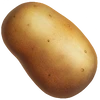
Fact
Potatoes were first cultivated in the Andes mountains over 7,000 years ago. Today, they are a staple food for over a billion people worldwide, with more than 3,000 varieties grown globally.
Tips for boiling potatoes: best practices and tricks
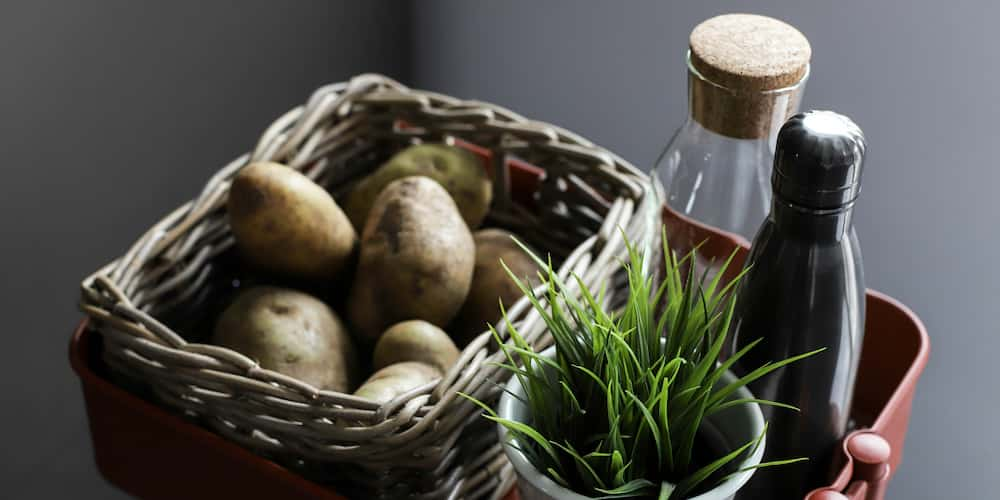
Perfectly boiled potatoes depend on small details that can significantly impact flavor and texture. Whether you're preparing potatoes for mashed dishes, salads, or other recipes, these tips will help you achieve the best results.
- Salt the water based on the purpose: For mashed potatoes, avoid salting the water at the start. Add salt after boiling to achieve a smooth and creamy consistency without making the potatoes too firm.
- Choose potatoes of similar size: To ensure even cooking, use potatoes that are roughly the same size. If you have varying sizes, cut larger ones into smaller pieces to match the cooking time of smaller potatoes.
- Check doneness with a fork or knife: To see if the potatoes are ready, pierce them with a fork. If it slides in easily, the potatoes are done. This method works especially well for boiling potatoes with skins, where appearance might not indicate doneness.
- Boiling potatoes with the skin on: Before boiling, wash the potatoes thoroughly to remove dirt. Boil them on medium heat for 20-25 minutes. After boiling, rinse the potatoes in cold water to make peeling the skin easier.
- Add vinegar or lemon to the water for salads: To keep potatoes firm and prevent them from becoming mushy in salads, add a tablespoon of vinegar or lemon juice to the boiling water. This helps maintain their texture.
Frequently Asked Questions
Explore common questions about cooking potatoes and discover precise tips to improve your cooking experience.
What’s the best potato variety for mashed potatoes?
Yukon Gold is ideal for mashed potatoes due to its creamy texture and buttery flavor, while Russet potatoes are perfect for fluffy results.
How can I make roasted potatoes crispy?
For extra crispiness, parboil the potatoes for 5 minutes, toss them in hot oil, and roast at 425°F (220°C) until golden brown.
Why do potatoes sometimes taste watery?
Over-boiling or boiling without enough salt can make potatoes absorb too much water; season the water generously and monitor cooking time.
Can I freeze cooked potatoes?
Yes, but waxy potatoes like red or Yukon Gold freeze better as they hold their structure; avoid freezing Russet potatoes as they can become grainy.
How do I keep mashed potatoes warm for a long time?
Keep them in a heatproof bowl over simmering water or use a slow cooker on the 'warm' setting.
How do I know if potatoes are still good to eat?
Avoid potatoes that have green spots, a bitter taste, or sprouted eyes, as they may contain harmful solanine.
What’s the fastest way to peel boiled potatoes?
Submerge boiled potatoes in ice water immediately after cooking; the skin will loosen and peel off easily.
Similar timers
Select the timer best suited for your purposes:
- Free 45-second timer with alarm. Simple and convenient timer with sound for various tasks.
- Free online 7-minute timer. Enhance productivity and manage your time effectively.
- 1 hour and 30 minute timer. Manage your time with a customizable and easy-to-use online timer.
- 10-second timer with beep. Simple and effective timer for quick tasks, study sessions, and more.
- Free 3-hour online timer. An easy-to-use, modern online timer with customizable sound notifications.
- Free 55-second timer with beep. Simple and convenient timer for study, work and games.
- Cook scallops: how long? Use the timer to perfectly cook scallops.

